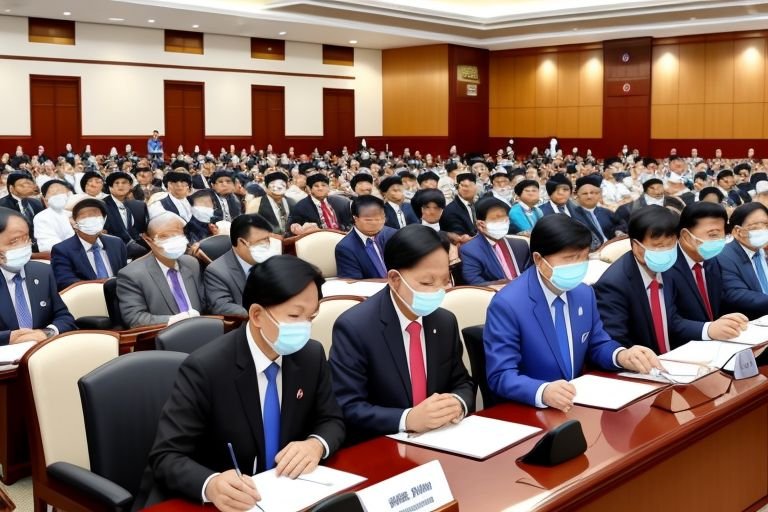
Southeast Asian Health Ministers To Meet On Key Health Issues
As nations and the world continues to face new and complex health issues WHO’S South East Asia Region readies for Health Ministers meeting next week. To be held in Doha, Qatar on the 9-13 of October 2024, this annual meeting of health ministers from senior levels focuses on identifying challenges in the health sector and charting direction for health care almost two billion people residing in the 11-member nations.
The meeting thus comes at the right time given that the region is grappling with a new set of diseases, from the continuing challenges posed by infectious diseases, to non-communicable diseases and the effects of climate change on the health of the people of the region. Dr. Saima Wazed came as the who regional director for south east Asia in February, 2024 and is an influential figure in setting its direction and coordinating among member states.
Certain of the major areas of potential debate include: The enhancement of Health Systems to realize the concept of UHC. In the recent past, there have been improvements in the state of health in the region, but it is still staggering with poorly developed health systems, human health resource maldistribution and unfair distribution of health care. It is anticipated that the ministers will seek ways on how to address concerns on primary healthcare, particularly on the strengthening of disease surveillance systems as well as in the use of digital health to fill gaps.
The communicable diseases’ threat is still present and so are the concerns for the region. Though COVID-19 has reduced in the worst hit, the pandemic has revealed the importance and criticality of having proper response plans. The ongoing meeting is expected to discuss measures to strengthen the cooperation in disease detecting, alert and reaction mechanisms on the level of the region. Also, the ministers may consider accomplishments and incidence of other chronic communicable diseases, including tuberculosis, HIV/AIDS, and NTDs.
These key ideas are: Global climate change and effects on health Inequality and power imbalances Migration and its effects on health and health systems Climate change and its impact on health is another crucial area will bear considerable focus in the meetings. The study finds that the South-East Asia Region as being highly prone to climate- sensitive health risks such as extreme events, shift in diseases, and food and water hardship. The ministers may discuss possible approach to developing climate-proof health systems and how health-related aspects might be incorporated into a country’s climate change mitigation frameworks.
This aspect of health, which has especially received little attention in the overall health agenda in the region, is gradually attracting attention. Mental health has been affected by COVID-19 infection and increased stress hence the availability of efficient mental health services and fighting stigma. The meeting might discuss how to better integrate mental health care in to PHC and community-based health care systems.
This is the ever increasing burden of non-communicable diseases (NCDs) that is another focus expected to be discussed. Cardiovascular disorders, cancer, diabetes and chronic respiratory diseases are among the major causes of rising mortality and morbidity rates in South-East Asia. They may suggest methods of dealing with NCDs with especial reference to health checking, a healthy diet, and the avoidance of tobacco products.
With the region still on the implementation of the Sustainable Development Goals (SDGs), the meeting is likely to establish achievement gains as well as the gaps that need to be stepped up. MCH, Micronutrient and WASH intervention may be specific priority areas probably within this context.
The next meeting also gives countries chance to discuss best practices and novelties relating to the delivery of health care. Some of the countries in the region have registered achievement in fields like digital health, community mobilization, and public private partnership in health. It’s unfortunate that these experiences may hold potential for informing the general solutions concerning pertinent issues and for replicating best practices throughout the concerned area.
The results of this top-level meeting are believed to define the further strategies and directions of the regional health care systems. With the problems of global health becoming multifaceted and interrelated, joint actions of the SEA countries will be instrumental in creating strong and sustainable systems of health care for almost a quarter of the world’s population.


